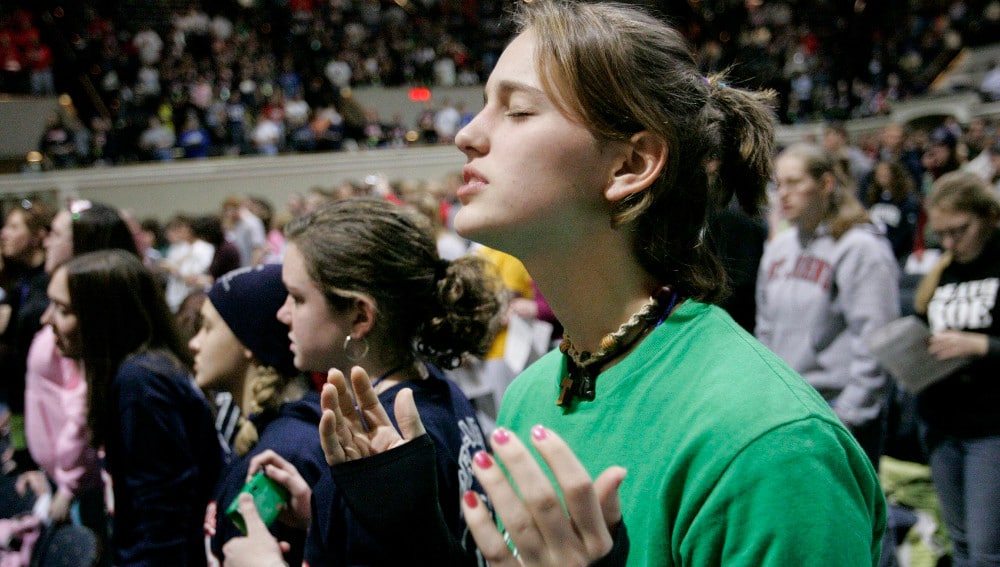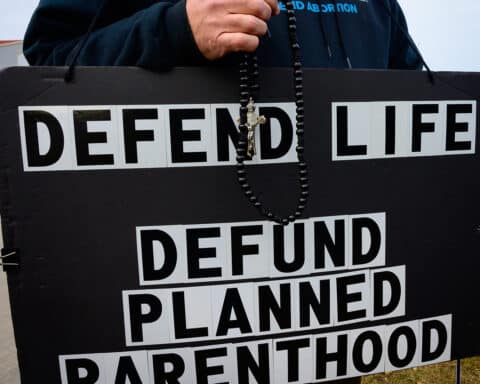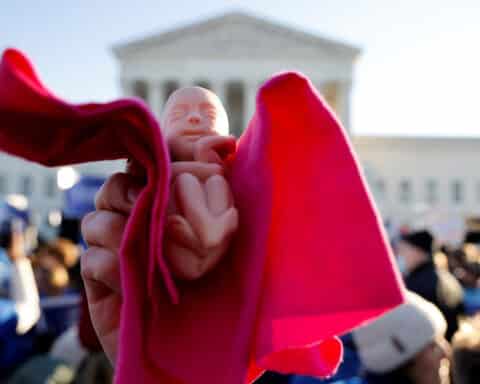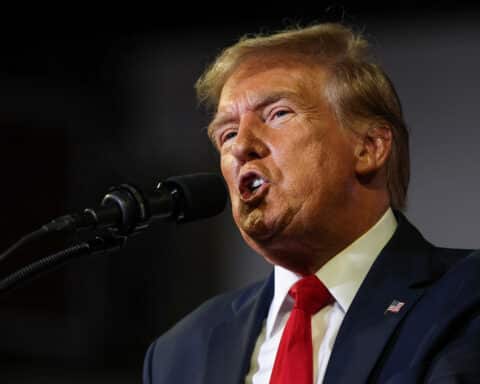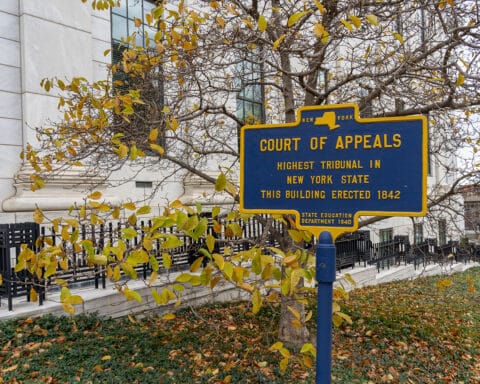For more than 25 years, a youth rally in Washington, D.C., has welcomed crowds of young Catholics descending upon the capital city from dioceses across the country for the annual national March for Life. The youth rally was a visible manifestation not only of the commitment of tens of thousands of young people to the pro-life cause but also of their joyful witness to the Catholic faith.
The Archdiocese of Washington recently announced that, “after a consultation process that involved dialogue with other dioceses, ministry leaders, and the partners who assist the archdiocese in hosting the annual rally and Mass,” it has “decided not to move forward with hosting the larger multi-diocese rally.” And while the customary Vigil Mass held at the Basilica of the Shrine of the Immaculate Conception will continue to be held, the cancellation of the youth event marks one of the first major shifts in the national Catholic pro-life effort post-Dobbs v. Jackson.
As it has been for the past 50 years, the national March for Life will once again be held in late January. In 2023, the date is set for Jan. 20, two days before the anniversary of the now-overturned landmark 1973 Supreme Court decision legalizing abortion, Roe v. Wade. Rather than marching to the Supreme Court, as in years past, organizers have announced that the March for Life will conclude at the steps of the U.S. Capitol. The move signals that the efforts to protect all innocent life have shifted from the government’s judicial branch to its legislative branch.
For their part, the U.S. bishops seem to be directing their efforts next January on a local level, meaning fewer people will be able to attend the national March for Life. The simple fact is that, if the Archdiocese of Washington were expecting the same numbers of young Catholics last seen at the event (last held in 2020, before COVID), they would not be canceling the nationwide rally.
We agree that, despite the continued importance of the national March for Life, state rallies, marches, and actions must now dominate our efforts for the pro-life cause. As this editorial board has argued, “We need to recognize that the greatest efforts to save the lives of the unborn have always come at the local level,” and that will be even more true in our post-Roe world. Local action needs the full-throated support of every parish volunteer, teacher, priest, religious and bishop.
But looking back at the past success of the youth rally provides a template for what local efforts might look like. First, the youth rally held at Capital One Arena focused on the Mass. Gathering for prayer sets the tone of the protest. In the past, the Holy See has even granted a plenary indulgence for Catholics who participate in a Mass in conjunction with the March for Life. Local efforts, too, should be centered in prayer, especially holy Mass. A Eucharistic witness, the “source and summit of Christian life,” counters the culture of death by the sacramental presence of the living Christ.
Further, the youth rally fostered vocations. Local organizers developing regional or state-level events should be attentive to inviting priests, religious sisters and brothers, and seminarians. Opportunities can and should be made for young people to hear testimonies witnessing to the joys of priesthood and consecrated life. Young men and women should be invited to consider a priestly or religious vocation. They should be instructed to pray to know God’s will for their lives, and they should be given prayer cards encouraging them to pursue personal holiness and a relationship with Christ.
Moreover, the youth rallies featured catechesis intentionally geared to young people. As organizers strategize and designate resources for local events, priority should be given to inviting young people and creating spaces especially for them. Music, talks, prayer and other events should be planned with the intention of capturing the imagination and hearts of the next generation.
Despite — or perhaps because of — the unprecedented interpersonal access owing to the rise of social media and the ubiquitous nature of smartphones, young people today suffer from staggering degrees of loneliness and isolation. The youth rally had the ability to unite, bringing young people together and allowing them to see they were not alone in their beliefs. Local efforts will succeed if they similarly invite youths to join not merely a cause but a community.
Finally, the youth rally was marked above all by a spirit of hope. For 50 years, Catholics gathered in Washington to peacefully demonstrate against Roe v. Wade. Many did not expect to see the overturning of Roe in their own lifetime. And yet, year after year, young people came to Washington to contribute to and animate the pro-life movement. After the decisive losses pro-life measures saw at the ballot box in the midterm elections, the hope of young people can and must continue to inspire the fight for life.
Our Sunday Visitor Editorial Board: Father Patrick Briscoe, Gretchen R. Crowe, Scott P. Richert, Scott Warden, York Young

